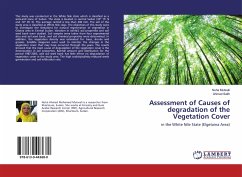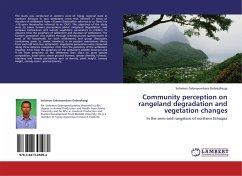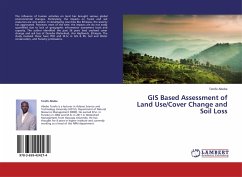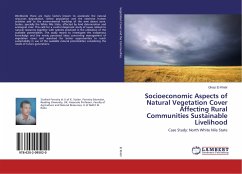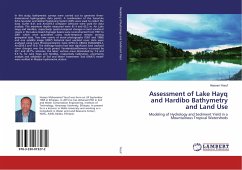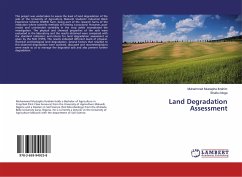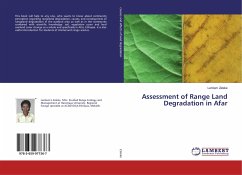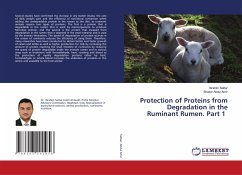This study was conducted in the White Nile state which is classified as a semi-arid zone of Sudan. The state is located in central Sudan (32º 15' N and 14º 45' E). The average rainfall is less than 200 mm. The soil of the study area is classified as White Nile clays. The objectives of this study were to investigate the limitations for natural regeneration of vegetation in Gitaina area in Central Sudan. Variation in rainfall, soil properties and soil seed bank were studied. Soil samples were taken from four experimental sites and soil seed bank, and soil chemical properties were determined. In addition, the vegetation density was estimated for trees, shrubs and grasses. Satellite imageries were used to monitor the changes in the vegetation cover that may have occurred through the years. The results showed that the main cause of degradation of the vegetation cover is the deterioration in soil properties. Rainfall amount and distribution for the period 1987-2005, and soil seed bank has little effect on degradation of vegetation cover in the study area. The high sodicity/salinity reduced seeds germination and soil infiltration rate.
Bitte wählen Sie Ihr Anliegen aus.
Rechnungen
Retourenschein anfordern
Bestellstatus
Storno

